Covid in Scotland: What happens when the virus becomes endemic?
- Published
- comments
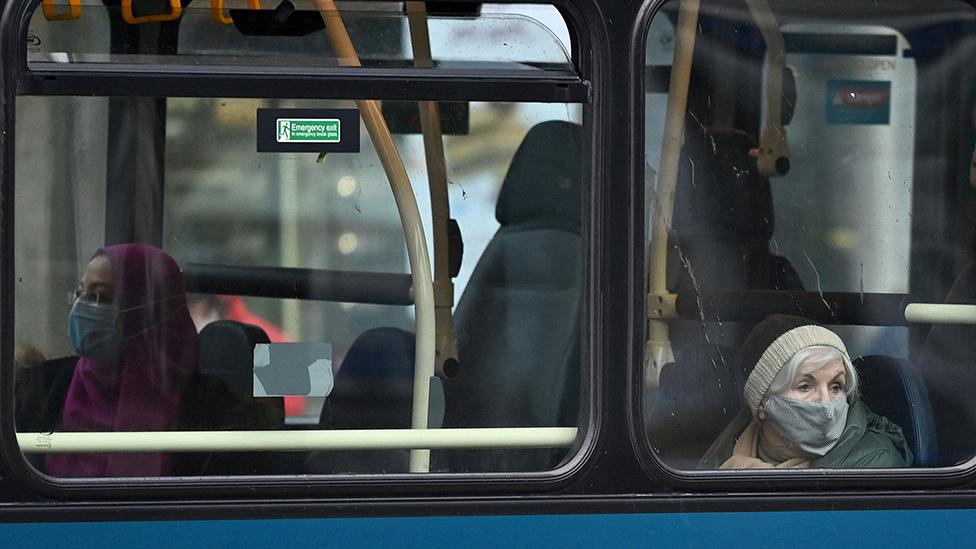
The first minister will give an update on Covid restrictions later as MSPs return to Holyrood. It follows a relaxation of rules on self-isolation and testing that moved Scotland in line with other UK nations.
UK cabinet minister Nadhim Zahawi has talked about the transition from a pandemic to Covid being treated as "endemic". What does this mean and what will the impact be on our lives?

In March last year, First Minister Nicola Sturgeon said she wanted to "eliminate" Covid from Scotland, but the consensus among most disease experts was that this would be very difficult., external
The situation, at a local and international level, has moved on significantly since then.
Mark Woolhouse, professor of infectious disease epidemiology at the University of Edinburgh, says the virus is here to stay - and it took many governments far too long to realise it couldn't be eliminated.
"This was obvious [to epidemiologists] from February 2020. We knew way back then this virus was going to become endemic," he told BBC Scotland.
"We went into the first lockdown in March 2020 with most of us under the illusion that if we just toughed it out for a few weeks that the virus would somehow go away.
"There was never any prospect of that. We were always going to have to be living with the virus for the foreseeable future."
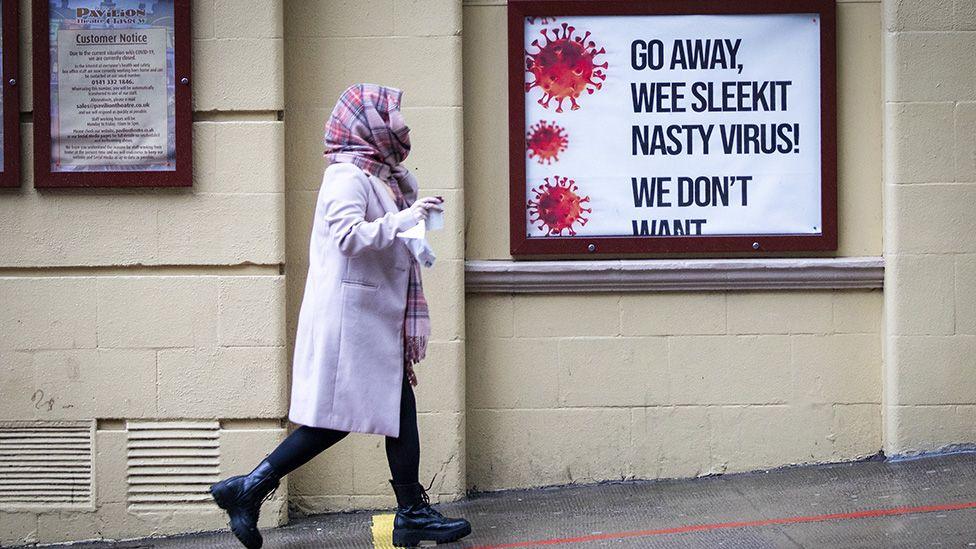
Many people wrongly believed the virus would 'somehow go away', says Prof Woolhouse
If that sounds bleak, there's also an expectation from many epidemiologists that the "disease burden" will lessen over time, with fewer people needing hospital treatment or dying.
Paul Hunter, a professor in medicine at the University of East Anglia, says that while the virus is "here to stay forever", the disease isn't.
"You're going to get it every few years forever probably, but the severity of the subsequent infections are always less than the earlier ones on average," he says.
It's a view that's been echoed by the Oxford/AstraZeneca vaccine creator, Prof Dame Sarah Gilbert, who recently told a Royal Society of Medicine webinar that Covid-19 would become like the common cold.
What's the definition of endemic?
A disease is considered endemic when it has a consistent and predictable presence in a geographic area.
It's an adjective that describes the state of a disease, rather than a noun like pandemic. You can be in a pandemic, but not in an endemic.
Prof Hunter says most endemic diseases also reach what's known as an "endemic equilibrium".
In terms of case levels, think flat lines rather than big peaks and troughs, and this would likely be reflected in hospital admissions and deaths as well.
However, there will always be some movement up or down in case levels, especially if the disease becomes seasonal, with more infections during the winter.
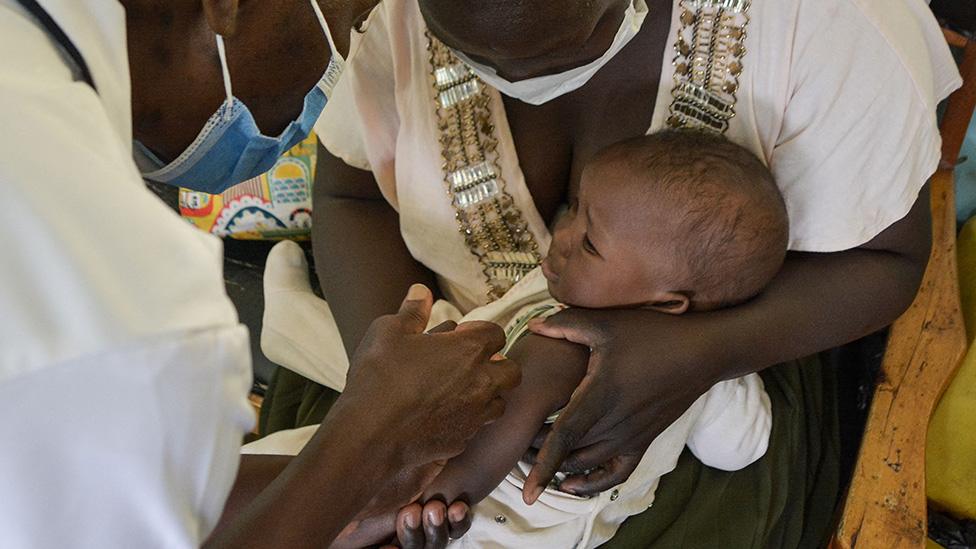
Malaria is endemic in many countries around the world.
There's also a distinction to be drawn between a disease's endemic level and what the desired level is within a country or community.
For instance, a government may decide it wants to push Covid-19 infections down below a certain rate so health services can cope or there are fewer deaths, but that level could be much lower than the virus's equilibrium.
Prof Hunter says an example of an endemic disease with socially unacceptable levels of disease and death is malaria.
"Malaria is endemic and kills hundreds of thousands of children each year," he says.
"Endemicity does not imply less severe necessarily. Something is endemic is when it is present in a community pretty much all the time and is likely to remain in that community for the foreseeable future."
Will there be an official declaration that Covid is endemic?
Not really, no.
Although the World Health Organization (WHO) labelled the coronavirus outbreak a pandemic in March 2020, it no longer "declares" pandemics like it used to and it's not likely to announce that Covid is now endemic.
Instead, the WHO announces a disease is a "public health emergency of international concern" (PHEIC). The body has made six such declarations since 2009 including the one for Covid on 31 January 2020.
When WHO officials judge that health services across the globe are no longer under threat from high levels of Covid, they will lift the PHEIC declaration, but Prof Hunter thinks this is unlikely to happen this year.
He says the WHO has got to make sure it is "all right across the world" before they lift that.
"There are some countries that are lagging behind that have difficult times ahead," he adds.
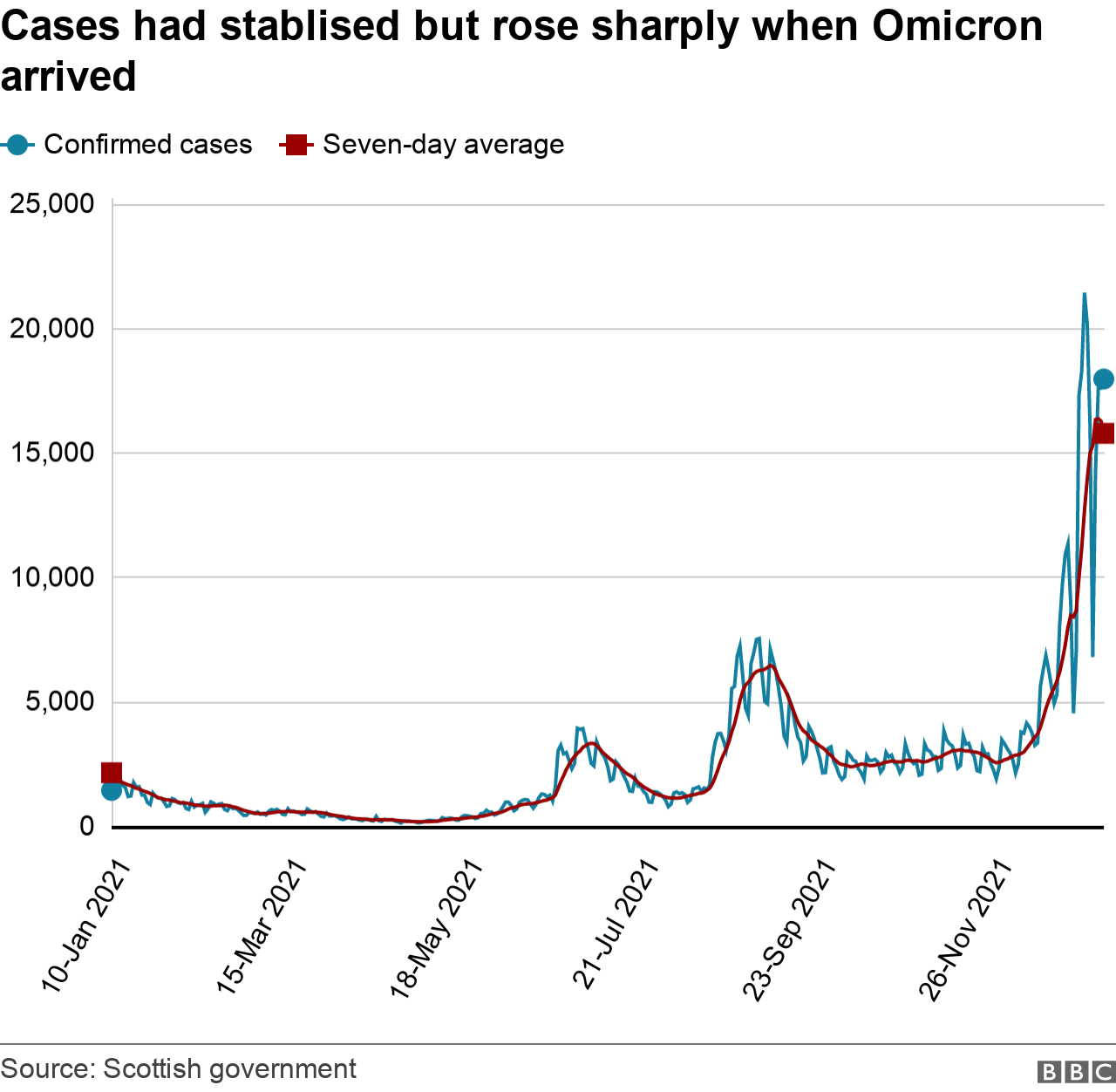
It is of course possible that the disease could reach its "endemic equilibrium" in Scotland before a formal WHO announcement that the global emergency is over.
Prof Hunter believes the previously dominant Delta variant was reaching this point in the autumn and there were signs this was happening in Scotland as cases unusually plateaued for about a month.
But that pattern was abruptly interrupted by the arrival of the very infectious Omicron variant at the end of November, which caused cases to rise sharply over Christmas and New Year, and there is every chance this could happen again.
What will endemic look like?
We're already living with Covid in a very different way now than we were a year ago.
When cases rose sharply in December 2020, fuelled by the new Alpha variant, the easing of restrictions over Christmas was cancelled and the UK went into full lockdown shortly after new year.
Case levels are far higher now, but with the protection afforded by vaccination, restrictions are far less stringent this time.
Prof Woolhouse says it's important that governments evolve strategies to find ways of living with Covid which don't cause the harms that lockdowns do, but he thinks it's likely some measures will remain.
"There is a view that we could somehow wish this virus away and we shouldn't have to have any restrictions at all: no face masks, no testing," he says.
"Some people don't even want to take the vaccine. That's not realistic."
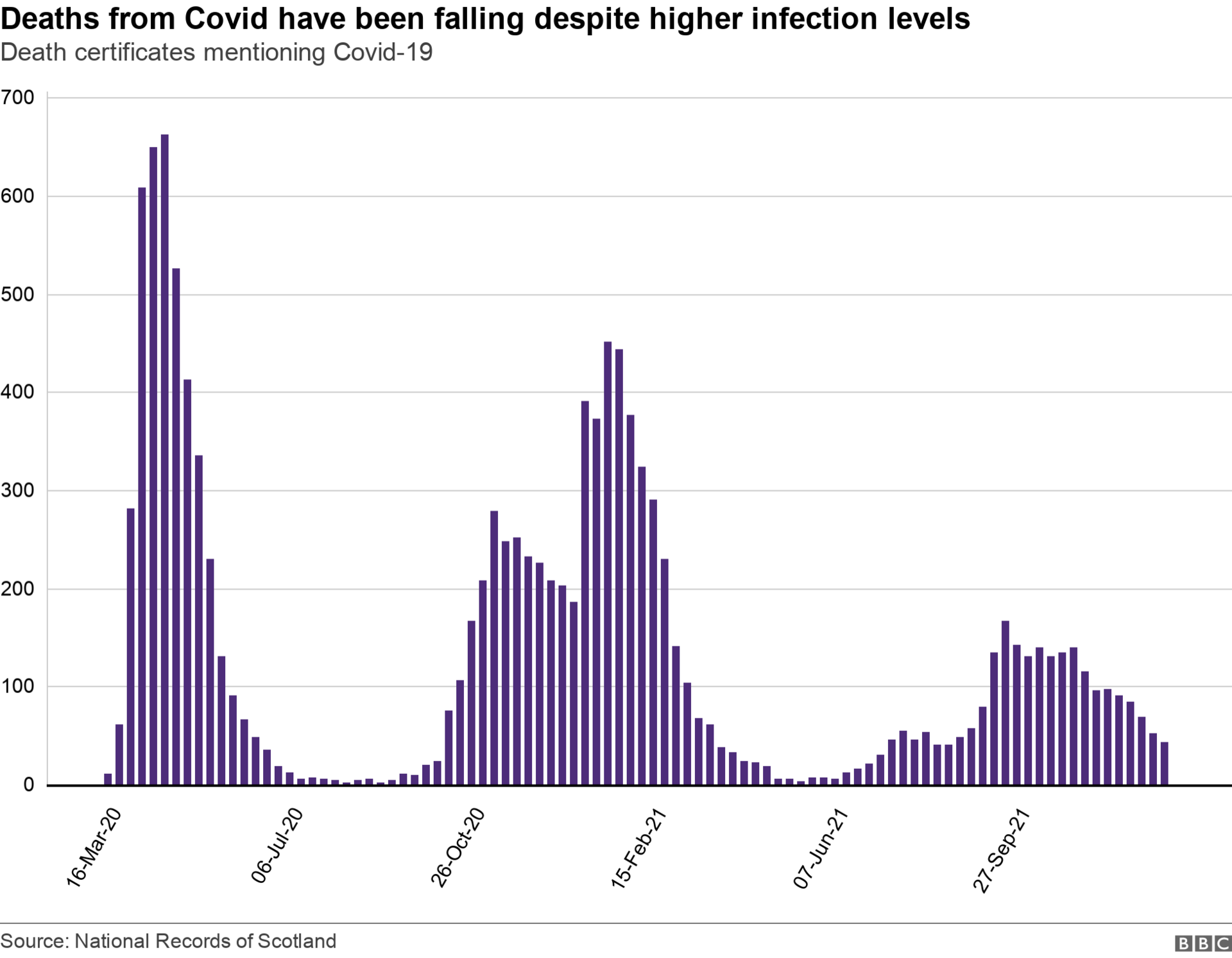
Prof Hunter also believes we will continue to see fewer restrictions - and he argues that social restrictions have much less impact as diseases reach an endemic equilibrium.
"The things that drive the growth of the epidemic are different to what maintains the level of infections when you're close to the endemic equilibrium," he says.
"Because to a large extent during an epidemic, the primary function you have of controlling anything is by social restrictions, behavioural change.
"But when you're at the endemic level, the thing that influences how many cases you're seeing is primarily how quickly people lose immunity."
Introducing social controls at this point can have a short-term impact on infection levels, but then they just "drift" back up again and could actually make things worse by lengthening the gap between infections, he adds.
"Immunity to infection and even to severe disease doesn't last forever.
"It's quite plausible that if you get exposed every six months you get a mild infection. If you only get exposed every five years you end up getting really sick."

